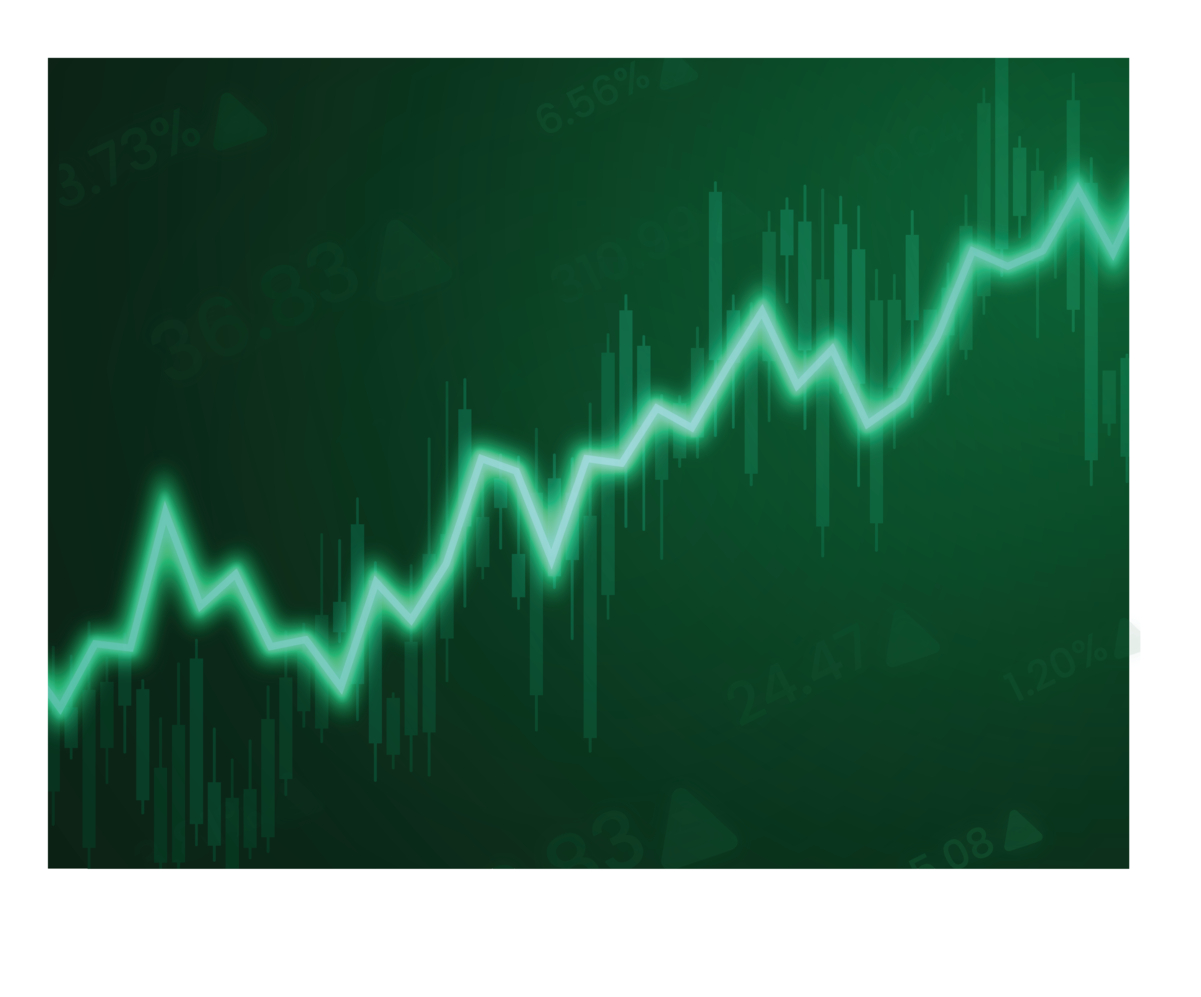"And, by the way, the bulk of the billions in Berkshire Hathaway has come from the better businesses. ... And most of the other people who've made a lot of money have done so in high-quality businesses." -- Charlie Munger
At Tier 1 Investments, a Motley Fool Real-Money Portfolio, I seek out and invest in elite businesses. These include companies with the strongest competitive advantages, largest growth opportunities, and best management. I call these businesses Tier 1 enterprises, and Facebook (FB +1.77%) has earned its place among the elite.
A deep and widening moat
Facebook has numerous competitive advantages. Perhaps its most glaring is its massive user base, which now stands at more than 1.1 billion monthly active users. Even more impressive, more than 700 million people use Facebook every day. The size of Facebook's network dwarfs that of its competitors, which has made gaining access to its platform increasingly important to advertisers around the world. But what makes Facebook's user base even more valuable is the data the company collects from its users. Every day hundreds of millions of people willingly tell Facebook what they "like," which allows marketers to better target ads, thereby increasing return on investment for advertisers, and, by extension, the amount they're willing to pay Facebook to gain access to its data. My esteemed colleague Tim Beyers had this to say on the topic:
Facebook has changed how we engage in commerce by involving our friends. The network tracks what we like, what we play, where we go, and who matters most to us. It's a model that disrupts traditional demographics, and an adventurous business team is focused on wringing value out of it.
Let me say that again, because it's important. Nobody else on Earth knows about you what Facebook knows about you. The information in its databases amounts to an entirely new form of demographics covering hundreds of millions of people.
The more people join Facebook's network, the more data it collects. The more data it collects, the more valuable Facebook's platform becomes for advertisers. And the more cash Facebook earns, the more it has to invest in new products and services that help to increase user engagement and entice new users to join. It's a classic network effect, and this virtuous cycle should continue to serve shareholders well in the future.
Tremendous growth opportunites
The global advertising market is expected to approach $600 billion by 2015. Facebook currently commands only about 1% of that total. But the trend is certainly working in Facebook's favor, as more dollars migrate from traditional advertising to the Internet, where people around the globe are spending an ever increasing amount of their time.
And Facebook is not just sitting back, content to let a rising tide lift its boat. The innovative company has launched a host of new products, from Instagram video, where people are already uploading hours of video to Instagram every minute; to Custom Audiences, which enables Facebook's clients to enhance their ad targeting by marrying their data with Facebook in a privacy-protected way; as well as a new mobile ad targeting service that helps marketers reach people in emerging markets who they could before.
These products and many more like them are helping Facebook earn increasing amounts of business from a range of marketers, including e-commerce companies, which doubled their ad spending in the second quarter on a year-over-year basis; mobile app developers that use Facebook to acquire new customers; and brand marketers that crave access to Facebook's engaged and growing user base. In addition, more and more local businesses are beginning to advertise on Facebook, with the number of active advertisers surpassing 1 million in the second quarter, more than double the number from only a year ago. While that number is impressive, it's just a small fraction of the local businesses on Facebook, and so I expect this number to increase dramatically in the years ahead.
And finally, Facebook is excelling in the mobile space. What was once viewed as a weakness is now seen as a strength, with nearly 500 million people using Facebook on their phones every day. In fact, Facebook now has more daily active users on mobile than on desktop and expects to soon earn more revenue on mobile than on desktop as well. COO Sheryl Sandberg had this to say during Facebook's latest conference call:
The time people are spending on mobile devices is increasing dramatically, yet mobile represents just 2% of ad spend globally and 3% in the U.S. We have a massive and growing mobile user base. We have an impressive share of mobile time spent, and we have one of, if not the, most effective mobile ad product. Together, this positions us well to lead the mobile ad market. We believe that over time, marketers will increasingly rely on Facebook, not just to reach people wherever they are but to fundamentally transform the way they build their businesses. As Facebook delivers personalized experiences to over 1.1 billion people, we also have a unique opportunity to deliver a more personalized advertising experience. As I meet with marketers all around world, I find more and more that they are understanding the benefits of this opportunity. As a result, Facebook is poised to play a central role in the evolution of marketing.
With its mobile business leading the way, I expect Facebook's revenue growth to continue to exceed Wall Street's expectations.
Exceptional management
Mark Zuckerberg co-founded Facebook in 2004 and is chairman and CEO of the company. While critics see him as a wild card and potential risk, I believe he has the making of a visionary CEO. In fact, his extremely high approval ratings on Glassdoor.com -- currently at 97% -- lead me to believe that his leadership abilities may be severely undervalued by the casual observer. He's successfully balanced the needs of Facebook's many stakeholders, including its customers, as evidenced by Facebook's ever-increasing user base, and its shareholders, thanks to the stock's recent tear -- and, more importantly, the long-term course upon which he's set Facebook's business.
Helping Zuckerberg execute his vision is Sandberg, who joined Facebook in March 2008 after a successful career at Google. Sandberg's advertisng experience and operational expertise complement Zuckerberg perfectly, and together, they form the nucleus of a very competent management team.
Risks and why I'd sell
One risk that Facebook bears often highlight is that Zuckerberg controls more than 50% of Facebook's voting rights, because of Facebook's dual-class structure. Make no mistake: This places Zuckerberg in control of Facebook's strategic direction, and an investment in Facebook is very much an investment in Zuckerberg's vision. But who else would you rather lead the company than the person who built it from the ground up? And Zuckerberg's 17% ownership stake, currently valued at more than $20 billion, aligns his interests with those of Facebook's shareholders. But more importantly, Zuckerberg appears extremely passionate about Facebook's mission to connect the world. And in my experience, few things are more valuable -- and often more undervalued by the market -- than a very passionate and highly capable founder and CEO.
Another potential risk is the loss of Sandberg, especially if she were to join a competitor. Sandberg has been rumored to be among a list of potential replacements for Steve Ballmer as Microsoft's (MSFT +3.45%) next CEO, and she will probably be a top choice for many companies in need of a talented executive capable of leading a global technology company. The loss of Sandberg would definitely hurt Facebook, but as long as Zuckerberg is still at the helm, it should be something Facebook's management team can overcome.
And finally, Facebook's success is highly dependent on the network effect. If we see signs of slowing -- or far worse, declining -- user numbers, Facebook's value proposition to advertisers could evaporate quickly. User engagement numbers should also be closely monitored, because declining engagement metrics would probably be a sign that Facebook is losing share to competitors. But I believe Facebook is stickier than many investors give it credit for, Here's what Zuckerberg said in Facebook's most recent conference call:
The Facebook community has grown steadily this quarter, adding 45 million new monthly actives, and the number of monthly actives is steady or increasing across demographics and countries. One thing that surprised me as we've grown is I've always expected our ratio of daily actives to monthly actives would decrease as later technology adopters used our service. The opposite has actually been true. There are now 61% of monthly actives are daily actives, and that ratio has just continued to increase. In our most penetrated markets like the U.S., more than 70% of our monthly actives use our services daily. And now, more than 700 million people worldwide use Facebook daily as of today.
So Facebook is not only growing its user base, but it's also seeing those users engage with its services more often. That's a powerful combination that should help drive the value of its business higher.
Valuation
Facebook's shares have nearly doubled since the company reported expectation-crushing second-quarter earnings, stretching the valuation of its shares in the process. With its forward P/E ratio above 50 compared with analyst expectations of 30% growth over the next five years, I could see why some investors would consider Facebook's shares too expensive today.
But rather than waiting and hoping to get the opportunity to buy shares at a more attractive valuation, I will be selling puts on Facebook. With this option strategy, I will be paid a premium to enter a contract to buy 100 shares of Facebook at a specified time and price. Specifically, I will be selling the Facebook January 2015 $50 puts, currently trading at about $10 per share. If Facebook is trading at or above $50 on the Jan. 17, 2015, expiration date, the puts will expire worthless. And the $1,000 I receive in premium ($10 per share times 100 shares) will amount to an approximately 20% gain on the $5,000 at risk ($50 per share times 100 shares).
If Facebook is trading below $50, I will be obligated to purchase shares at an adjusted price of $40 ($50 strike price minus the $10 per share in premium), or about 20% lower than today's price. I think it's also important to note that I would be buying Facebook in January 2015, after the company will have had time to grow its earnings and cash flows significantly. So, in effect, I would be buying shares of a very strong business at an even better valuation than is possible by simply buying shares today. And, importantly, I'd be very happy to purchase Facebook shares at that adjusted $40 price.
Finally, between the time I sell the puts and the expiration date, I will have the option of buying back my puts or rolling them to other strike prices and/or expiration dates. And so, with this put-writing strategy, there will be many ways to earn a profit.
The Foolish bottom line
Facebook is a rare, transformational Tier 1 enterprise. It is fundamentally changing the way people interact and connect with each other. And so, at least 24 hours after this article is published -- standard operating procedure for The Motley Fool's Real-Money Stock Picks program that's designed to give Fools the opportunity to buy ahead of us should they so choose -- I will be writing Jan. 17, 2015, $50 puts on Facebook in the Tier 1 Portfolio in hopes of profiting from the success of this elite business.







